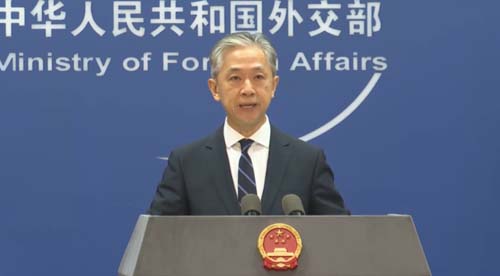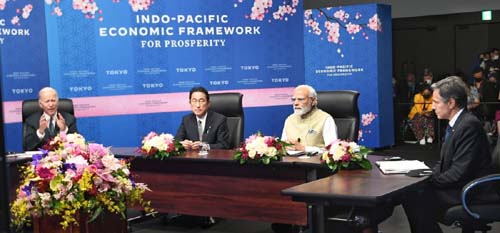US-led IPEF tool of coercion upon regional countries: China

Beijing: A Chinese foreign ministry spokesperson said on Wednesday the U.S.-led Indo-Pacific Economic Framework (IPEF) is a design of disruption to regional cooperation and a tool of coercion upon regional countries.
Spokesperson Wang Wenbin made the remarks at a daily press briefing, in response to a query on recent claims by U.S. officials that the so-called IPEF would become an important platform for the U.S. and Indo-Pacific countries to enhance economic links, and provide an alternative to China for the region.
As the United States has claimed the framework will help it “win the competition of the 21st century,” Wang said this fully proves the framework in the first place is intended to serve the U.S. economy.

Noting the U.S. has been absent from the Asia-Pacific economic cooperation in recent years, Wang pointed out that the U.S.-proposed IPEF is merely starting things anew for serving its own interests.
At the same time, Wang said the framework is intended for advancing the U.S. geopolitical strategies. The arrangement, practicing exclusion under the pretext of cooperation, is aimed to establish U.S.-led trade rules and restructure industrial chain systems, for the purpose of decoupling regional countries from the Chinese economy, he added.
Although many regional countries are included in the framework, Wang said it is indifferent to the development level and actual needs of these countries. “It does not include arrangements such as exemption of customs duties or market access, but forces all countries to accept the so-called high standard by the United States.”
The Asia-Pacific region is an upland of peaceful development, and should not become a chessboard of geopolitical contest, Wang said, adding any initiative conducive to regional development should go in line with the principles of openness, inclusiveness and win-win cooperation, rather than create division and confrontation.
China is willing to work with regional countries to practice real multilateralism and forge an open regional economy, to jointly build a better Asia-Pacific homeland, Wang added.





